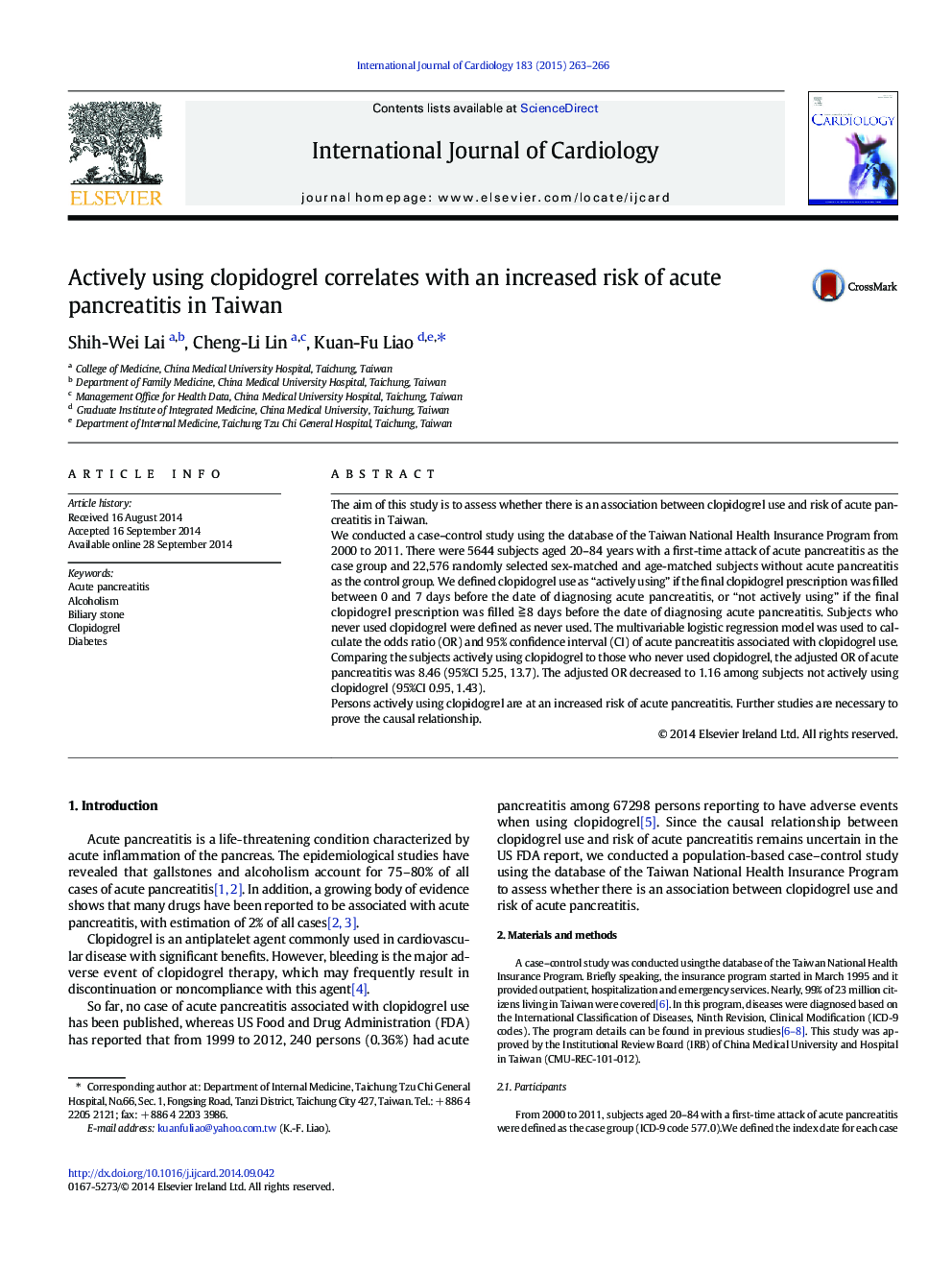| Article ID | Journal | Published Year | Pages | File Type |
|---|---|---|---|---|
| 5968221 | International Journal of Cardiology | 2015 | 4 Pages |
â¢Persons actively using clopidogrel are at an increased risk of acute pancreatitis.â¢If not actively using clopidogrel, the risk would decrease.â¢Actively using clopidogrel would markedly enhance the risk of acute pancreatitis among persons with cardiovascular disease.
The aim of this study is to assess whether there is an association between clopidogrel use and risk of acute pancreatitis in Taiwan.We conducted a case-control study using the database of the Taiwan National Health Insurance Program from 2000 to 2011. There were 5644 subjects aged 20-84 years with a first-time attack of acute pancreatitis as the case group and 22,576 randomly selected sex-matched and age-matched subjects without acute pancreatitis as the control group. We defined clopidogrel use as “actively using” if the final clopidogrel prescription was filled between 0 and 7 days before the date of diagnosing acute pancreatitis, or “not actively using” if the final clopidogrel prescription was filled â§Â 8 days before the date of diagnosing acute pancreatitis. Subjects who never used clopidogrel were defined as never used. The multivariable logistic regression model was used to calculate the odds ratio (OR) and 95% confidence interval (CI) of acute pancreatitis associated with clopidogrel use.Comparing the subjects actively using clopidogrel to those who never used clopidogrel, the adjusted OR of acute pancreatitis was 8.46 (95%CI 5.25, 13.7). The adjusted OR decreased to 1.16 among subjects not actively using clopidogrel (95%CI 0.95, 1.43).Persons actively using clopidogrel are at an increased risk of acute pancreatitis. Further studies are necessary to prove the causal relationship.
